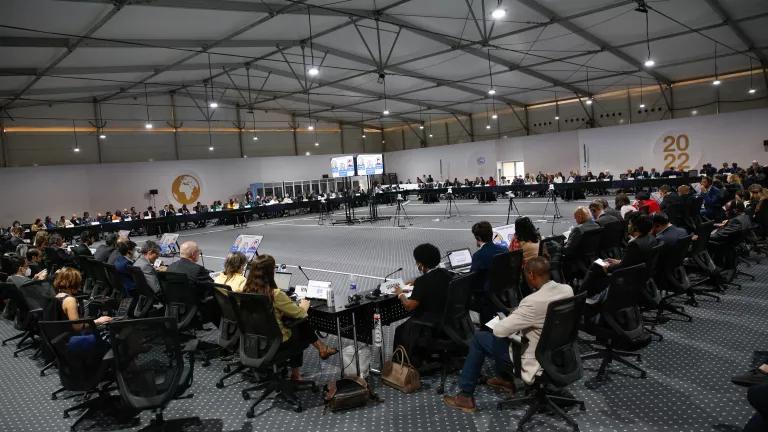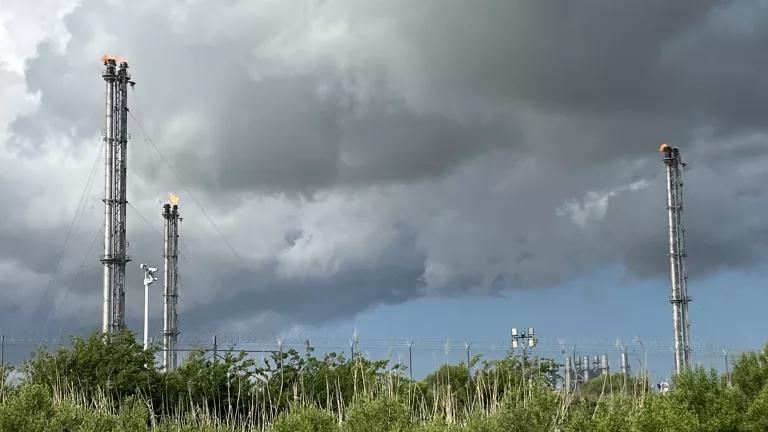Latin America Green News: Solar power gets a boost in Chile, wastewater runoff pollutes rivers in Costa Rica, petroleum subsidies come under the microscope in Mexico, energy efficiency targets light up Central America
Latin America Green News is a selection of weekly news highlights about environmental and energy issues in Latin America.
February 22- March 1, 2013
Chile
Persistent drought in Chile’s central region has caused water levels to drop in six major reservoirs used for power generation. According to the SIC—operator of the country’s central electric grid—the largest deficit has been observed in the Chapo reservoir, where the water level is 5% below its historical average. This has reduced the proportion of electricity generated from hydropower in the region, from 45.8% in January 2012 to 40% in January 2013. (Electricidad 2/25/2013)
The Chilean Government has issued an international tender to support the construction of a Concentrated Solar Power (CSP) plant in the country’s sunny north. The facility will boast 50 MW of installed capacity and come equipped with thermal storage, a system that will allow it to operate without sunlight for three hours at 85% capacity. Although 2,500 MW of CSP capacity is installed worldwide, the plant will be the first such facility in Latin America. (AméricaEconomía 2/28/2013)
Forty six false killer whales were found stranded on Caleta Susana beach in the Strait of Magellan. The whales, also known as black orcas, were discovered by local fishermen, who alerted the navy. Although 20 of the whales had already died, authorities were able to return 26 to sea. Scientists are still working to determine the cause of the beaching. (Santiago Times 2/26/2013)
Costa Rica
Between December 20, 2012 and February 15, 2013, thirty-five leatherback turtles came to nest on the beaches of the Las Baulas National Marine Park. Although this figure is consistent with the seasonal averages observed over the last decade, the number of nesting turtles in the area has plummeted 97% since 1988. The drop is largely a result of the uncontrolled egg harvesting that was rampant in the region throughout the 1980s. (La Nación 2/27/2013)
Jorge Jiménez Ramón, director of the MarViva Foundation—an organization that encourages the conservation and sustainable use of marine and coastal resources—has penned a new guide to marine management. The publication, which aims to be a technical reference and an input into Costa Rica’s official Marine Spatial Planning Guide, will be distributed across Latin America and the Caribbean. (El Financiero 2/28/2013)
Wastewater runoff is threatening Costa Rica’s largest rivers, claims a new report published by the Comptroller General of the Republic. Of the country’s 34 watersheds, 25 were found to have some level of fecal, chemical, or solid waste contamination. The report attributes the problem to a lack of a national policy on wastewater disposal and poor central and local monitoring. Estimates show that a staggering 95% of the wastewater that enters some of the country’s largest rivers is untreated. (La Nación 2/28/2013)
Mexico
A housing project under construction in Guadalajara will come equipped with solar power stations and solar lighting, claims Solar America Corp, a Mississippi-based company that has recently signed a memorandum of understanding with the housing development’s principal contractor. Mexico is already a leader in solar power within Latin America, although experts say that the country continues to have significant untapped potential. (United Press International 2/25/2013)
According to a recent report released by ASF, Mexico's federal audit authority, the country’s gasoline, diesel, liquid petroleum gas and power subsidies appear inconsistent and ineffective. The report criticizes the schemes, which are managed by the Ministry of Finance and Public Credit, for their lack of transparency and poor targeting. For example, ASF estimates that, in 2011, the richest 20% of households received 52.3% of gasoline and diesel subsidies. The poorest 20% received just 3.6%. (BN America 2/26/2013)
Legal troubles are mounting for Paraiso del Mar, the resort development in Baja California Sur that recently had its environmental impact assessment nullified by Mexico’s Federal Court for Fiscal and Administrative Justice. CEMDA—an NGO that seeks to strengthen the country’s environmental legal system—has now filed a complaint with the Federal Attorney for Environmental Protection (PROFEPA) stating that the project has been operating without a valid environmental permit since 2010. The complaint requests that PROFEPA investigate this claim and take appropriate action against the project. (Peninsular Digital 2/26/2013)
Regional
Countries in Central America have pledged to phase out inefficient lighting by 2016. The target is part of en.lighten, a UNEP and GEF-supported initiative that assists countries around the world in accelerating the transition to more efficient lighting technologies. Achieving greater lighting efficiency in the residential sector represents an energy savings of 1.41 TWh per year and can reduce Central America’s carbon dioxide emissions by 0.52 metric tons. (El Financiero 2/26/2013)
For more news on the issues we care about visit our Latin America News archive or read our other International blogs.
This week’s news was compiled by Maria Belenky.




